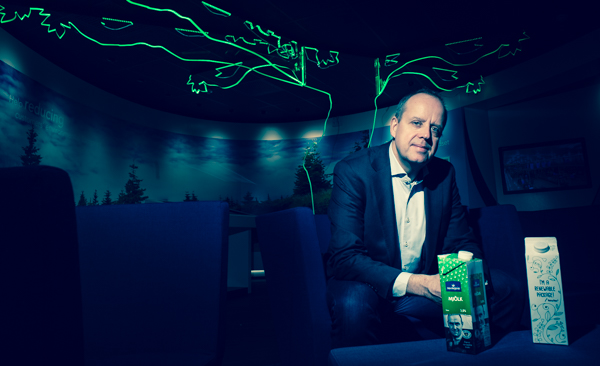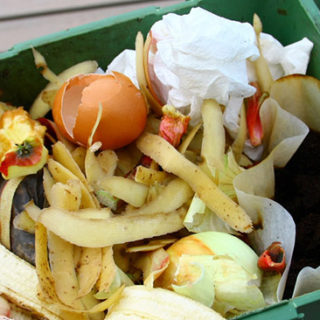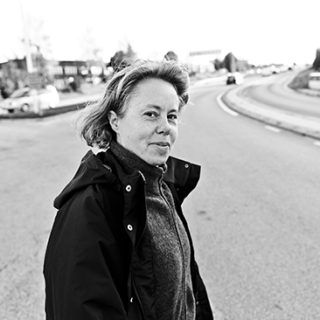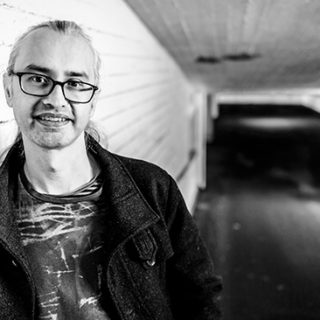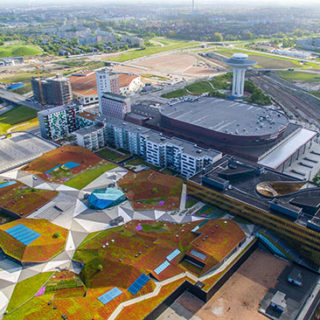Back to school to conduct research on sustainability
“Sustainability is a long-term issue. A journey, rather than a goal. You can always take steps along the way – but the work is never done. It is about continuous improvement”, says Erik Lindroth, Environment Director at Tetra Pak and now also new doctoral student at the School of Economics and Management.
“The background is simply that I started looking for examples and research that could show how a company can create commercial value through environmental sustainability”, says Erik Lindroth.
A few years back, he began discussing with his manager whether someone should be researching ways to better define, quantify and integrate environmental sustainability into the sales process. Erik Lindroth has a background as an international economist, and has been working at Tetra Pak since the mid-90s, in a number of different capacities.
“After three–four years, I usually find it’s a good time for me to take on something new. I believe in building your own career and having a long-term plan for where you want to go.”
After four years at Tetra Pak’s global environment department, he was offered to take on an operational role and be responsible for the Nordic and Baltic markets, and he gladly accepted. Combining environmental work with business seems obvious to him.
“I have a commercial background. And all the good work we do must create value – we must be able to gain from it, along with our customers.”
“It’s more about the journey than the goal.”
Humility and confidence are a prerequisite for sustainability
To Erik Lindroth, sustainability is about continuous improvement.
“And the insight that you’ll never reach perfection. It’s more about the journey than the goal. Moving too quickly can cause problems. It’s more of a marathon, not a sprint. Sustainability issues must be addressed with a high degree of humility, but also with confidence and based on facts and real improvements. You don’t want to be accused of green-washing.”
The concept of sustainability is usually defined on the basis of environmental, social and economic dimensions of sustainability.
“I will probably start by exploring the depth of environmental sustainability and then investigate how to use it to create value. I think it is easier to create pure commercial value in environmental sustainability. Very little has been done with regard to how this is to be implemented in the actual sales process. That’s where you meet the customer. That’s where you carry out the deal.”
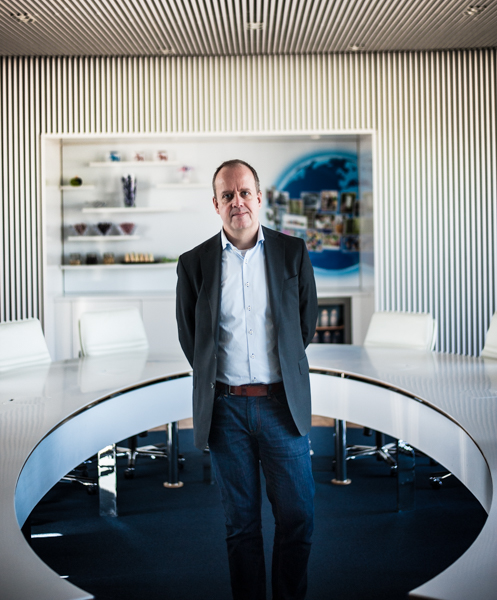
Ensuring scientific rigor while taking commercial aspects into account
Erik Lindroth will be conducting research part-time and, as a first step, is intending to complete a licentiate thesis. At Tetra Pak he has let go of some of his responsibilities – the UK, Ireland and the Benelux countries – but will continue to work with the Nordic and Baltic countries. Overall, it means that this alumnus is back to being a student part-time at the School of Economics and Management.
“It feels great! So exciting! It’s fun to feel like a newbie again. A bit humbling. The academic and commercial worlds have completely different perspectives. I’m used to things moving fast – the material goes straight into a PowerPoint presentation and you’re on to the next thing. But in academia it’s more about being critical, even self-critical, going against your own preconceived notions, applying precision, and quality assurance.”
“It will take some time to get used to it. I look forward to it, but dreading it too:
safeguarding scientific relevance and rigor, yet making sure there is something to gain for the company as well.”
He has not yet formulated a research issue for his thesis, but much of the thought process leading up to it has been completed.
“I want to make sure that it will be of interest both to the company and to academia. Although I have certainly got off to a flying start in terms of practical knowledge, and of my network with other environmental directors in Sweden, it is a challenge to return to the scientific, the linguistic, using scientific terminology, review, and apply an academic approach.”
“But a change of environment and perspective is always good. At least for me!”
Text: Evelina Lindén
Photo: Peter Frodin


